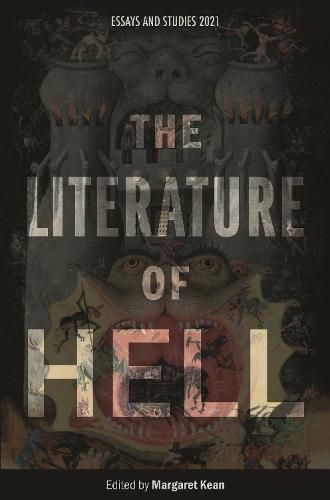Readings Newsletter
Become a Readings Member to make your shopping experience even easier.
Sign in or sign up for free!
You’re not far away from qualifying for FREE standard shipping within Australia
You’ve qualified for FREE standard shipping within Australia
The cart is loading…






Narratives of a descent to the underworld, of the sights to be seen and the punishments meted out there, have kept a hold on the popular imagination for millennia. The legacy from doctrinal warnings and the deep-set literary markers that identify a place of suffering and alienation continue to stimulate creative exchange and critical thinking. Such work takes risks: it braves the dark and questions the past.
The contributions in this volume reflect on the exigency of hell in the stories that we tell. They consider the transfer and repurposing of motifs across genres and generational divides, and acknowledge the sustained immediacy of physical and psychological landscapes of hell. The essays span a wide chronological range and apply various contemporary critical approaches, including cognitive science, performance studies and narratology. This cross-period analysis is complemented by interviews with three creative practitioners: Jeya Ayadurai, director of Hell’s Museum in Singapore, the actor Lisa Dwan, who is acclaimed for her dramatisation of Samuel Beckett’s late works, and the writer David Almond. From ancient myth and early English sermons to mid-twentieth-century surrealism and current responses to terrorist activities and environmental damage, the literature of hell engages with issues of immediate relevance and asks its audiences to reflect on their cultural history, the meaning of social justice and the nature of embodied existence.
$9.00 standard shipping within Australia
FREE standard shipping within Australia for orders over $100.00
Express & International shipping calculated at checkout
Narratives of a descent to the underworld, of the sights to be seen and the punishments meted out there, have kept a hold on the popular imagination for millennia. The legacy from doctrinal warnings and the deep-set literary markers that identify a place of suffering and alienation continue to stimulate creative exchange and critical thinking. Such work takes risks: it braves the dark and questions the past.
The contributions in this volume reflect on the exigency of hell in the stories that we tell. They consider the transfer and repurposing of motifs across genres and generational divides, and acknowledge the sustained immediacy of physical and psychological landscapes of hell. The essays span a wide chronological range and apply various contemporary critical approaches, including cognitive science, performance studies and narratology. This cross-period analysis is complemented by interviews with three creative practitioners: Jeya Ayadurai, director of Hell’s Museum in Singapore, the actor Lisa Dwan, who is acclaimed for her dramatisation of Samuel Beckett’s late works, and the writer David Almond. From ancient myth and early English sermons to mid-twentieth-century surrealism and current responses to terrorist activities and environmental damage, the literature of hell engages with issues of immediate relevance and asks its audiences to reflect on their cultural history, the meaning of social justice and the nature of embodied existence.